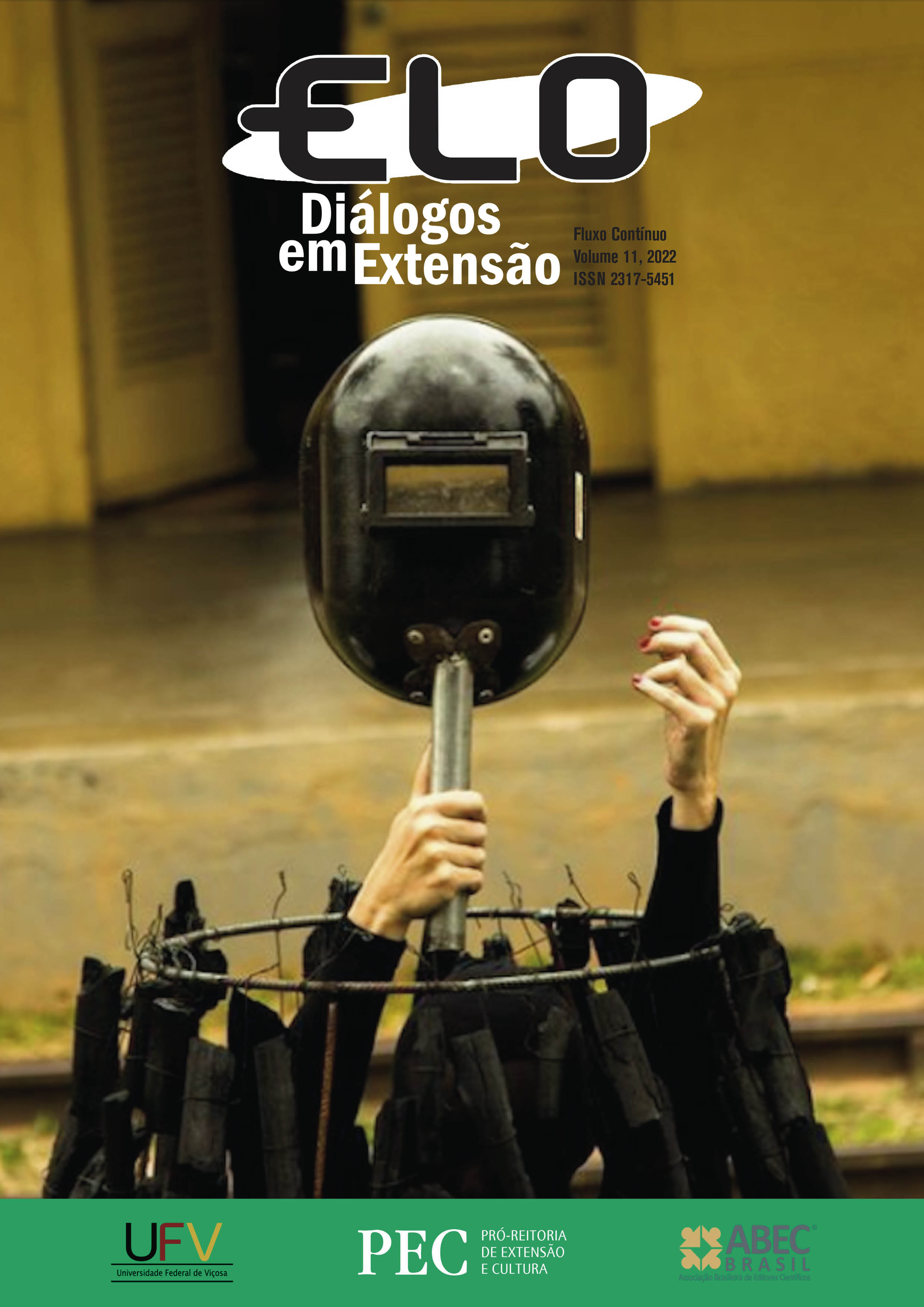Informe de experiencia sobre el potencial bioherbicida de Cojoba arborea sobre la germinación y vigor de Cassia fistula
DOI:
https://doi.org/10.21284/elo.v11i.14516Keywords:
Curriculumization, saponins, Secondary metabolites, WorkshopsAbstract
The extension curriculum enables the preparation of resources for their performance in the job market, from the performance of extension activities in the subjects of the course's curricular matrix. The objective of the study was to promote a workshop as an extension curriculum demonstrating how to obtain the secondary C. arborea extract and use it as a bioherbicide, since the metabolites can be used as substitutes found in the species for synthetic herbicides. The workshop outline with two moments being the first essay in a dialogic way about what are allelochemicals and their effect on plants and which of these substances are found in the species under study. The moment was practical, where the students all together the stages of the experiment from the production to the extract and the interpretation of the data. It was verified that the extract of C. arborea improved the germination of C., thus confirming its bioherbicidal effect.
Downloads
References
BRASIL, Ministério da Agricultura, Pecuária e Abastecimento. Regras para Análise de Sementes. Brasil, DF. 2009.
DUKE, Stephen; ROMAGNI, Joanne; DAYAN, Romagni. Natural Products as Sources for New Mechanisms of Herbicidal Action. Crop Protection. 2000.
FERNANDES, Rosangela do Nascimento. Uso de Saponina de Quilaia (Quillaja saponaria Molina) em juvenis de pacu. Tese (doutorado) - Universidade Estadual Paulista Júlio de Mesquita Filho, Centro de Aquicultura de Jaboticabal, 2014.
MOITA, Filomena Maria Gonçalves da Silva Cordeira; ANDRADE, Fernando Cézar Bezerra. O saber de mão em mão: a oficina pedagógica como dispositivo para a formação docente e a construção do conhecimento na escola pública. Reunião Anual da ANPED. 2006.
MONTEIRO, Heloísa Ribeiro de Sena; SOUSA, Andressa Ingrid da Silva Ramos de; MARTINS, Hellen Neves Fortineles; FARIAS, Patrícia Pilar. A Importância das Oficinas Pedagógicas no Processo de Ensino Aprendizagem. Epistemologia e Práxis Educativa, 2019.
MOUSSAVI, Seyyed Sasan; KARAMI, Akbar; HAGHIGHI, Tahereh Movahhed; ALIZADEH, Saeed; MAGGI, Filippo. Phytotoxic Potential and Phenolic Profile of Extracts from Scrophularia striata. Plants, 2021.
PIZARRO, Ana Paula; FILHO, Alfredo Martins de Oliveira; PARENTE, José Paz; MELO, Marli; SANTOS, Celso dos; LIMA, Paulo. O aproveitamento do resíduo da indústria do sisal no controle de larvas de mosquitos. Sociedade Brasileira de Medicina Tropical. 1999.
ROMAN, Erivelton Schere; VARGAS, Lenadeo; RIZZARDI, Mauro Antonio; HALL, Linda; BECKIE Hugh; WOF Thomas. Embrapa Centro Nacional de Pesquisa de Trigo - CNPT Passo Fundo-RS-Brasil. p. 152, 2005.
SANTOS, João Batista da Silva; ALMEIDA, Jaqueline Maria de; AZEREDO, Liz Daiana Tito; DIAS, Aline Peixoto Vilaça; LUQUETTI, Eliane Crispim França. Importância da Curricularização da Extensão no Processo de Formação Discente. Revista Philologus. Rio de Janeiro. 2019.
SILVA, Fabiana Maraschin; AQUILA, Maria Estefânia Alves. Contribuição ao Estudo do Potencial Alelopático de Espécies Nativas. Sociedade de Investigações Florestais. Viçosa, MG. 2006.
SILVA, Thainara Oliveira; ANDRADE, Tamires Soares de Oliveira; DIAS, Lais Rodrigues; MEDEIROS, Ana Carolina de; FREITAS, Francisca Inês da. A Importância da Extensão Universitária na Formação Acadêmica. Centro de Ciências da Saúde, Departamento de Ciências Farmacêuticas. 2013.
SOARES, Geraldo Luiz; VIEIRA Tatiana Reis. Inibição da Germinação e do Crescimento Radicular de Alface (Cv. "Grand Rapids") por Extratos Aquosos de Cinco Espécies de Gleicheniaceae. Floresta e Ambiente. 2000.
WINA, Elizabeth; MUETZEI, Stefan; BECKER, Klaus. The Impact of Saponins or Saponin-Containing Plant Materials on Ruminant ProductionsA Review. Journal of Agricultural and Food Chemistry. 2005.
Downloads
Published
How to Cite
Issue
Section
License
Copyright (c) 2022 Revista ELO – Diálogos em Extensão

This work is licensed under a Creative Commons Attribution 4.0 International License.
Authors who publish in this journal agree to the following terms:
A. Authors grant the journal the right of first publication, with the work simultaneously licensed under the Creative Commons Attribution License which allows the sharing of work with acknowledgment of authorship and initial publication in this journal.
B. Authors are authorized to take additional contracts separately, for non-exclusive distribution of the version of the work published in this journal (e.g. publish in institutional repository or as a book chapter), with acknowledgment of authorship and initial publication in this journal.
C. The journal holds the right to make format, orthographic and grammatical changes in the article to ensure the language standards, respecting the author’s style as well.
D. The opinions expressed by the authors are of their exclusive responsibility.















